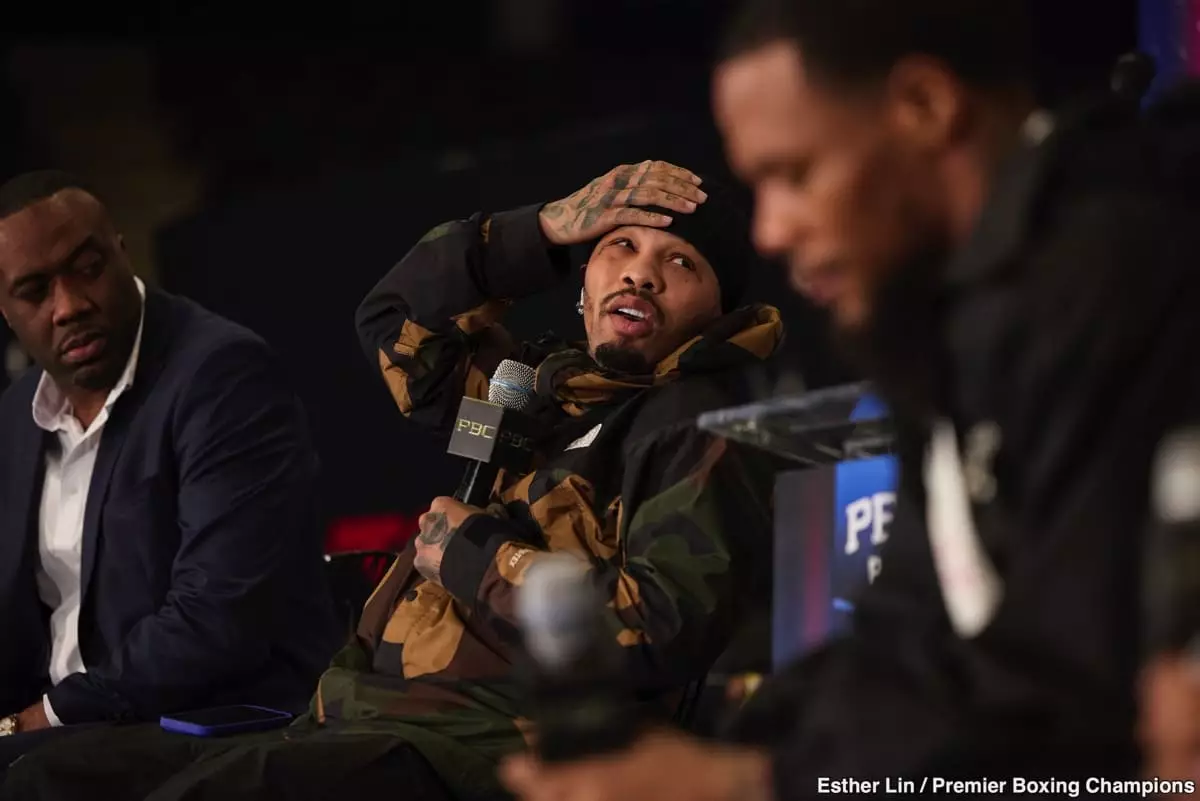This past Saturday, the boxing world held its collective breath as the Ring Magazine Awards graced London with a bevy of luminaries from the sport. The anticipation surrounding the event, often celebrated as the ‘Oscars of boxing,’ was palpable as fans and athletes alike gathered to honor the elite of the industry. Yet, amidst the glitz and glamour, one notable absence stood out: Gervonta “Tank” Davis, the undefeated southpaw champion. His absence from the ceremony soon morphed into a fervent outcry on social media, igniting a heated discussion about loyalty, financial motivations, and the future of boxing.
Davis directed his ire primarily at Turki Alalshikh, the new owner of Ring Magazine, alleging a calculated exclusion from the invite list. Fueled by frustration and perhaps a tinge of jealousy, Davis did not shy away from expressing his thoughts. “Why they didn’t invite everybody,” he quipped, condemning the decision to invite fighters who had close ties with Alalshikh. His post opined that many of his contemporaries had ‘sold out’ by pursuing lucrative fights in Saudi Arabia, a sentiment that left the boxing community divided.
It is undeniable that Davis’ poignant frustrations reflect broader concerns regarding the state of the boxing industry. His words resonated with fans who yearn for a sense of authenticity and commitment to the sport rather than financial gain. “Stop d*** eating,” he urged, pointing fingers at fighters who choose the gold-laden paths paved in foreign lands. His criticisms reflect a deep-rooted skepticism about the evolving landscape of boxing, one that seems increasingly entangled in a web of monetary incentives over sporting integrity.
However, one must pause to examine the underlying reasons that compel fighters to chase the allure of enormous paychecks. Boxers, often subjected to precarious career lengths due to the physical demands of their sport, might feel the pressure to maximize earnings while the opportunity lasts. So why is Davis, a fighter himself, seemingly dismissive of these choices?
Amidst the lofty paydays offered in Saudi Arabia, fighters are merely acting in their best interest; after all, a fighter’s window for earning often closes much earlier than one would hope. There is a paradox at play where ideals of loyalty and authenticity clash with the harsh economic realities faced by professional athletes. Rather than disparaging their choices, perhaps the emphasis ought to be on understanding the motivations stemming from their unique circumstances.
Upon closer examination, it seems quite possible that Davis’ tirades stem from a deeper sense of discontent—perhaps even jealousy. As his peers venture off to secure career-high earnings, he finds himself on the sidelines, perhaps feeling overlooked in the grand scheme of a sport that is rapidly changing. With ballooning purses now associated with fights hosted in places like Saudi Arabia, he might subconsciously lament his own missed opportunities in the financial arena.
There is also the factor of ego at play. It is essential to recognize that Gervonta Davis, as a reigning WBA lightweight champion, carries a certain pride that accompanies his prestigious title. Therefore, his inability to secure such financial opportunities could lead him to lash out at those who have successfully navigated these new landscapes.
In an ironic twist, while Davis was absorbed in his grievances, Alalshikh was reportedly interested in forging a partnership with him for potential bouts against top-tier fighters like Shakur Stevenson. This raises the question: could Davis’ outbursts jeopardize opportunities for significant matchups that would not only earn him the respect of fans but also the financial stability he seems to crave?
As the conspiracy unraveled within the boxing sphere, one thing became clear: the landscape of the sport has shifted dramatically, and the players must adapt. If fighters like Davis wish to elevate their status while reaping the financial rewards associated with the emerging trends in boxing, they may need to reconsider their approach. The world is changing, and so too must their perspectives and strategies within it.
The dynamics of boxing today present a tangled web of loyalties, ambitions, and financial aspirations. As Gervonta Davis navigates these waters, he must strive not to alienate himself from the community he represents, while also embracing the inevitable evolution of his sport. The spotlight is squarely on him now; how he manages this moment may very well define his legacy in the years to come.

